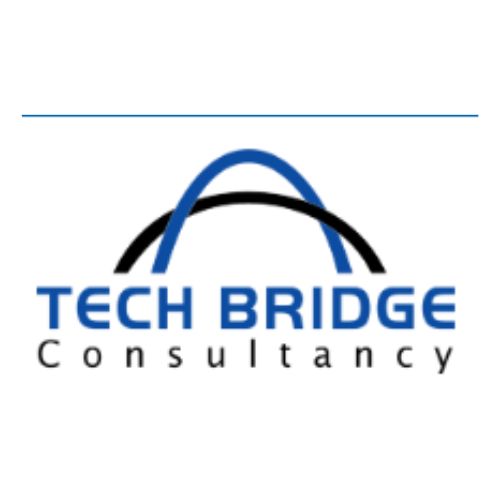
In today’s digital-first world, law firms and legal professionals can no longer afford to overlook the power of a well-structured online presence. Whether you’re a high-profile Supreme Court advocate or a legal consultancy firm nestled in the capital’s legal heartland, your digital identity matters. For legal professionals operating near or within the Supreme Court area of Delhi, Website Development Services in Supreme Court are becoming indispensable.
A law firm’s website is more than just a digital brochure—it’s a platform to showcase credibility, connect with clients, provide resources, and establish authority. And when legal intricacies meet modern web technology, the result is a powerful, professional, and client-friendly digital interface that reflects your legal expertise.
Why Legal Professionals Need Specialized Web Development Services
Legal websites serve a unique audience—clients looking for reliable legal help and peers seeking collaborative counsel. As such, generic web design just doesn’t cut it. Law-focused developers understand this niche and craft sites that go beyond aesthetics to include functionality, trustworthiness, and compliance with regulations.
Here’s why Website Development Services in Supreme Court that are tailored to legal firms make all the difference:
- Confidentiality & Security: Legal firms handle sensitive information. Websites need to be built with high-end security features like SSL encryption, secure client portals, and data protection mechanisms.
- Clarity & Professionalism: Law is complex. A good legal website presents information clearly, concisely, and professionally, making it easier for visitors to understand the services offered.
- Compliant Structures: Legal websites must follow industry regulations, including proper disclaimers, client confidentiality policies, and sometimes even data storage norms under Indian law.
- SEO for Legal Terms: Law-focused developers understand the importance of being discoverable online. They implement SEO practices around practice areas, legal jargon, and court-centric keywords.
What Makes Supreme Court a Hotspot for Legal Web Development?
The Supreme Court area in Delhi is more than just a legal hub—it’s a nucleus of high-stakes litigation, top-tier law firms, and national-level legal consulting. It’s no surprise that the demand for Website Development Services in Supreme Court is steadily rising.
Law firms in this vicinity are increasingly realizing the need for a solid digital footprint. Whether it’s showcasing notable cases, offering online consultations, or maintaining a digital document repository, firms are turning to expert developers who understand the nuances of the legal domain.
Additionally, being based near the Supreme Court provides developers with easy access to legal professionals for consultations, feedback, and iterative design changes. This proximity ensures quick turnarounds and a deeper understanding of client expectations.
Key Features of Law-Focused Web Development Services
If you’re considering upgrading your firm’s online presence, here are the features that Website Development Services in Supreme Court typically offer:
1. Custom Design & Branding
Law-focused developers create designs that align with your firm’s ethos—whether you’re a criminal defense lawyer, a constitutional law expert, or a multi-practice firm. Custom branding elements like logo integration, color themes, and fonts are designed to evoke trust and professionalism.
2. Practice Area Pages
Dedicated pages for each legal service area—civil litigation, criminal law, family law, arbitration, etc.—ensure that potential clients can find exactly what they need. These pages are optimized for search engines to drive more organic traffic.
3. Attorney Profiles
Detailed bios of lawyers, including experience, areas of practice, education, and notable cases, help build credibility and personalize the client journey.
4. Online Appointment Booking
Modern clients expect convenience. Integration of booking systems allows clients to schedule consultations directly from the website—an essential feature in today’s fast-paced environment.
5. Legal Blog Integration
Blogs are not only great for SEO but also a channel to showcase your expertise. Regular updates on legal developments, judgments, and case studies can help build your reputation as a thought leader.
6. Client Portals
Secure login areas where clients can upload documents, communicate confidentially, and track case updates—all under secure encryption protocols.
7. Mobile Responsiveness
With more users accessing websites via smartphones, responsive design ensures your website looks and functions perfectly across all devices.
8. Multilingual Support
For firms catering to diverse clients, offering content in multiple languages (like Hindi, English, and regional dialects) makes the site more inclusive.
Success Stories from Supreme Court’s Legal Community
Numerous law firms located near the Supreme Court have already made the digital shift with the help of local web development agencies. Here are a few anonymized case studies:
- Boutique Litigation Firm: A three-partner litigation firm transformed its basic HTML site into a full-featured WordPress platform with booking integrations, mobile compatibility, and a legal blog. Within 6 months, the firm saw a 40% increase in client inquiries.
- Senior Advocate’s Personal Site: A Supreme Court advocate wanted to create a minimalist portfolio site that highlighted key cases and media features. Developers created a sleek, secure platform that impressed both peers and media professionals.
- Corporate Law Consultancy: This firm utilized Website Development Services in Supreme Court to develop a multilingual, content-rich site that offered downloadable resources, compliance checklists, and AI-based document submission features for clients.
Choosing the Right Web Development Team
When selecting a web development partner in the Supreme Court area, keep the following points in mind:
- Experience in Legal Industry: Choose a team with prior experience building legal websites. Ask for a portfolio and look for case-specific functionality.
- Local Knowledge: Developers who operate near the Supreme Court understand the court system, legal terminology, and the professional tone expected.
- Customization Options: A good developer won’t push a template solution. They’ll offer customized features based on your firm’s goals.
- Ongoing Support: Websites require regular maintenance, especially those that handle sensitive information. Make sure your development partner offers maintenance packages and 24/7 support.
Future Trends in Legal Web Development
The legal industry is evolving, and web development trends are keeping pace. Here are some innovations we expect to see more often among firms using Website Development Services in Supreme Court:
- AI-Powered Chatbots: Smart bots that handle FAQs, schedule consultations, and offer preliminary legal guidance.
- Video Integration: Lawyers sharing thought pieces, case analyses, or client testimonials via embedded videos.
- Live Case Tracking Tools: Secure integration with court databases to allow clients to view updates on ongoing cases.
- Document Automation: Online tools where clients can fill out legal templates, reducing manual paperwork and saving time.
Conclusion: Your Law Firm Deserves the Digital Edge
The legal profession thrives on trust, clarity, and expertise. Your website should reflect these qualities. By investing in law-focused web development services in Supreme Court, you’re not just building a website—you’re building a digital gateway to your legal practice.
Whether you’re a solo practitioner or a large law firm, now is the time to embrace digital transformation. Website Development Services in Supreme Court are tailored to meet your unique legal needs, combining technical know-how with an understanding of the legal world. Don’t let your online presence be an afterthought—make it a strategic asset.





